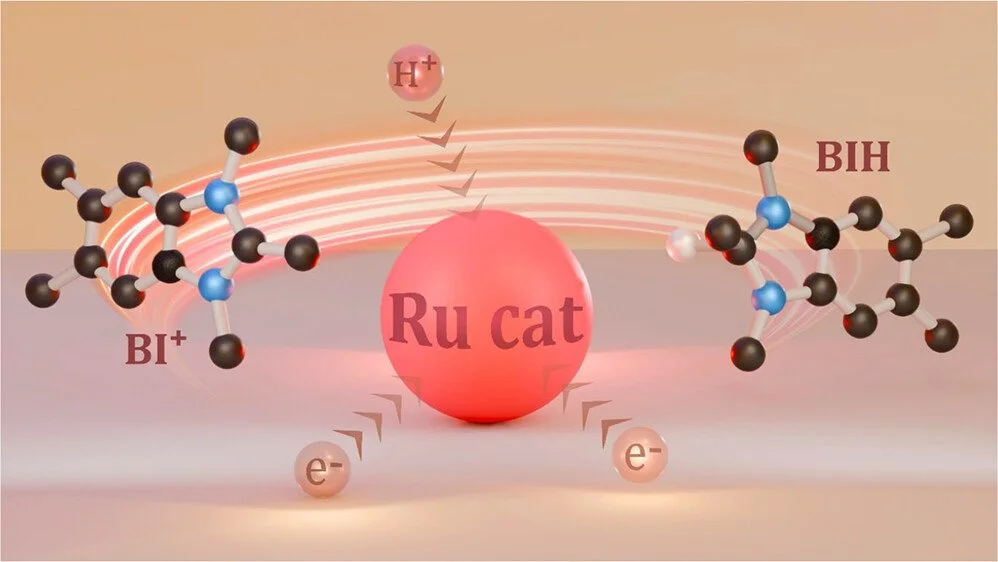Regeneration of Benzimidazole-Based Organohydrides Mediated by Ru Catalysts
Benzimidazole-based organohydrides (BIHs) are versatile hydride, electron, and proton donors in a variety of artificial photosynthetic systems for the generation of solar fuels. Currently, BIHs are often used in stoichiometric rather than catalytic processes. The catalytic regeneration of BIHs from their oxidized form (BI⁺) is an urgent necessity in order to allow the development of recyclable systems and devices, but viable examples are scarce and require large overpotentials. Here, we report the electrocatalytic regeneration of a series of BIHs with varying hydricities, promoted by a ruthenium half-sandwich complex, [(HMB)Ru(bpy)(H)]⁺ (HMB = η₆-C₆Me₆, bpy = 2,2′-bipyridine), in the presence of tributylammonium (HNBu₃⁺) as a proton source. This metal hydride was generated in situ from the 2e– reduction/protonation of the corresponding solvento-complex. In comparison to the direct cathodic reduction of BI+ in the presence of HNBu₃⁺, the use of this ruthenium catalyst allowed efficient regeneration of BIHs at less negative potentials, with Faradaic efficiencies up to 80% and significantly higher conversion yields due to the circumvention of the dimerization pathway and the stepwise reduction and protonation reactions. Finally, the thermodynamic challenges involved in the regeneration of very hydridic BIHs mediated by Ru hydride catalysts were examined.
Müller, A. V.; Desai, S. P.; Cappuccino, C.; Donley, C. L.; Miller, A. J. M.; Mayer, J. M.; Grills, D. C.; Polyansky, D. E.; Concepcion, J. J. Regeneration of Benzimidazole-Based Organohydrides Mediated by Ru Catalysts, ACS Catal., 2025, 15, 14996-15008. https://doi.org/10.1021/acscatal.5c01872

